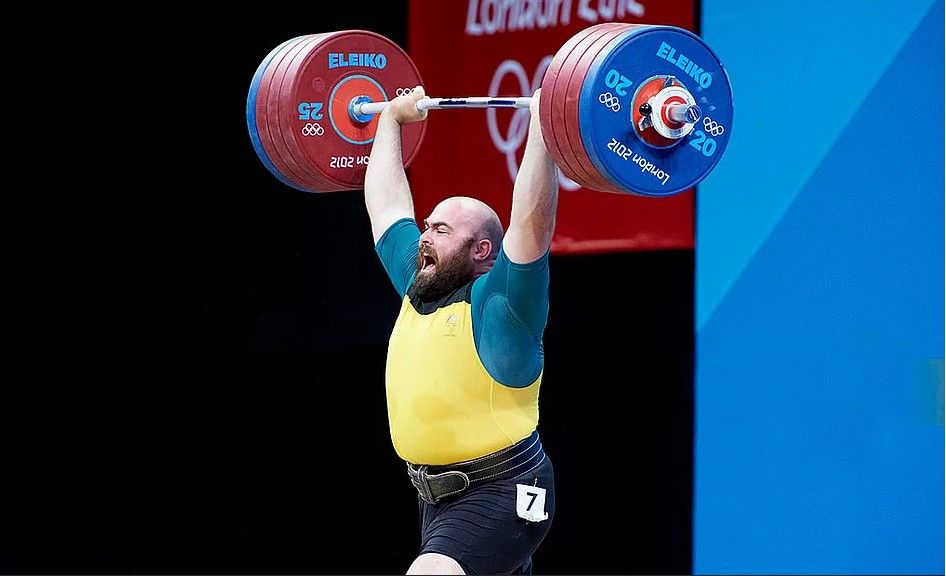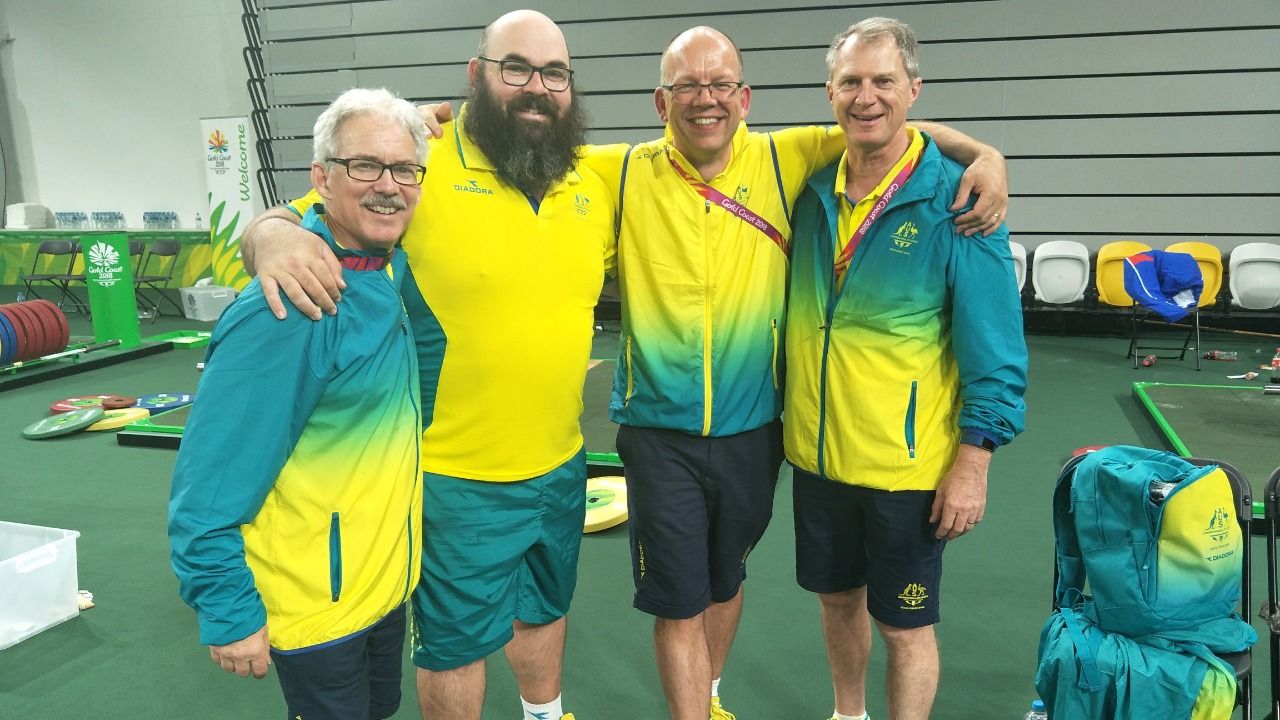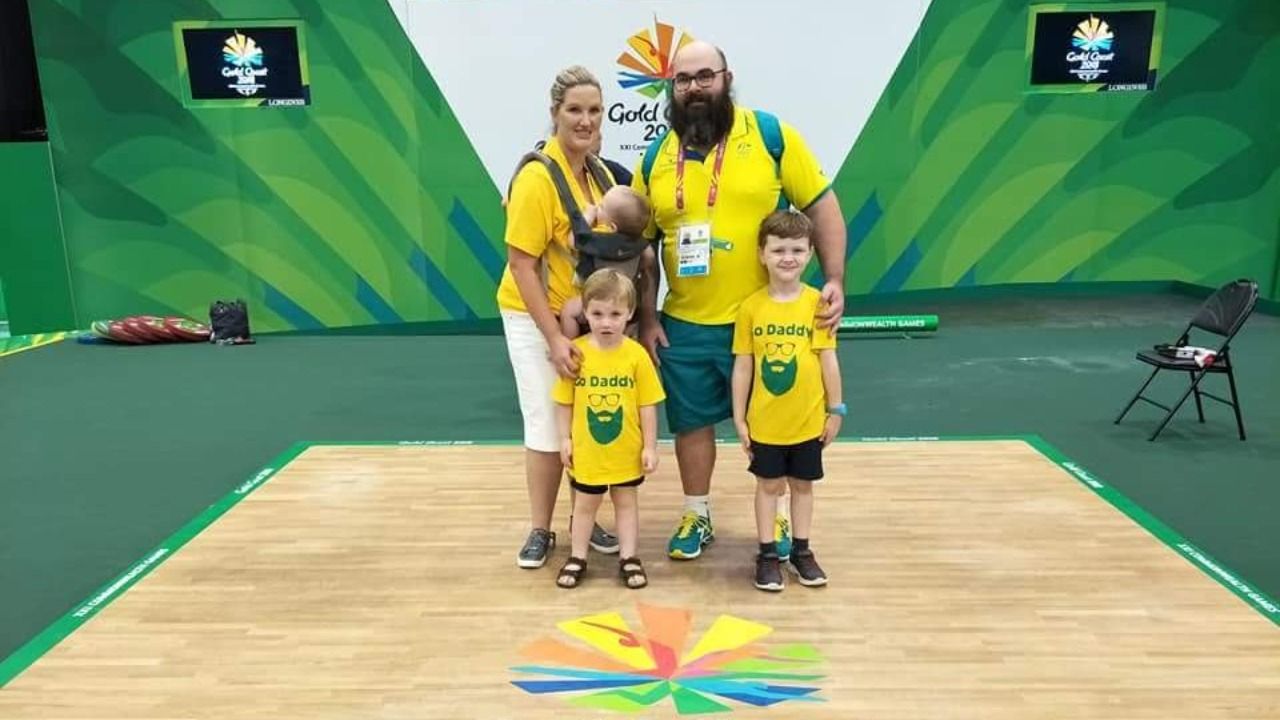



Damon Kelly: The Olympic Journey
With the kickstart of the 2021 Olympics in Tokyo, we spoke to an Australian weightlifting champion who has won 3 medals for us Aussies and is a fellow Mo Bro – Damon Kelly. Damon shares his experience in the industry and advice around mental wellbeing. Specifically, what it takes to become an elite athlete and prepare mentally for pre, post and during the Games.
Damon, are you able to give us some background on your career? Did you always want to be an athlete?
I had always enjoyed playing sport as a child and at school I played cricket, rugby union, rugby league, Aussie rules, athletics and more. It wasn't until year 10 that I crossed paths with weightlifting.
Mike Power put a notice out at school for anyone wanting to try Olympic weightlifting. A few friends and I went down to check it out as we had just started to go to the gym to help with our rugby. From there I learnt the basics and after 6 months Mike suggested I go to Cougars Weightlifting Club and train there. The rest is history.
Once I developed a passion for weightlifting it was my goal to compete for Australia at an Olympic and Commonwealth Games. I discovered quickly that weightlifting doesn't pay the bills, so I have always had to juggle work, study, and family around weightlifting commitments.
How has sport and a sporting community helped you and your mental health?
Weightlifting and its community has helped me tremendously over the years, and it still is now after the end of my athletic career. Weightlifting is an extremely physical and mentally tough sport. I found having a like-minded community to be there for support really helped, as there were people who have gone through similar situations as you.
Developing friendships with my training partners and coaches was essential to my longevity in the sport. Sometimes, we saw more of each other than our own families and it really helped to know they had your back. There were some instances where we helped each other out more with our personal life, rather than our training block or competition at the time.
" With weightlifting being an individual sport, you can get caught up and feel everything is on your shoulders, which becomes overbearing and will affect your mental health and training. "
To overcome this, I had to realise and acknowledge the support around me. I had my own team consisting of a coach, training partners, family, friends, physios etc, who all helped to share the burden of expectations and helped me achieve what I did.
Is there a particular community you’d like to give a shout out to?
I would have to give a big shout out to my coach Miles Wydall and Cougars Weightlifting Club. Miles is always there for his athletes and knows when to poke and prod to get the results on the platform but more so, as a person. He is always there to support no matter where or what the problem was. Also, a shout out to all my training partners and teammates for the past 20 years who created an excellent training environment and support network.
How did you prepare yourself mentally for the Games and can you give some advice on how you coped with the results?
Emotions can be very hard to control, especially when you are about to take on one of your lifelong dreams. Weightlifting is such a mental game; it is important to be in the right headspace for competition.
Personally, I enjoyed the big competitions as I could feel the adrenalin but had to control it. The adrenalin helped me focus and feel ready for the competition but often made me rush my warmup. That's where having a steady coach really helps keep everything on track, they help you focus and get you ready for that first attempt on the competition platform.
Another important process in preparing for the Games was to know how you are going to warm up and compete. Having a competition and warm up plan you have discussed with your coaching team is essential. It saves stress on the competition day, and you can use all your energy focussing on each lift at a time. It is also important not to think about the competition too early in the days leading up. It is easy to get caught up thinking about all the different scenarios and what weights you want to lift at the competition which can zap your energy for comp day.
What was the biggest challenge you faced in your career? How did you overcome it?
One of the biggest challenges in my career was in the lead up to the 2014 Commonwealth Games in Glasgow. I had won gold at the 2010 Games in Delhi and was heading into the competition as the defending champion.
In my final training block leading up to the Games I suffered a quad tear in training. Never having had that injury before I was worried about the recovery time and being at my best for the Games. I didn't want to let anyone down. That expectation I had on myself, the injury rehab and the ever-decreasing time to the Games became overwhelming for me.
There were times I would be overwhelmed and doubt whether or not I could make it. This was where having conversations with my wife, coach and physio helped me get back on track. These chats happened multiple times in the build-up to the Games and were essential in helping me believe in myself and the process. I went on successfully to compete at the Games and won a bronze medal.
Why do you believe mental health is so important? And how do you prioritise it?
Mental health is a huge part of being an athlete as it controls our mood and affects our ability to train and compete. We spend everyday training and trying to get our body right and should do the same for our mental health and headspace.
The best physical preparation in the world can be derailed if our mind isn't ready. I remember plenty of days at training where I just wouldn't feel up to it and did not want to train. It might have been a tough day at work or a stressful period of study. It is important to have a break when needed. I would talk with my coach about how I was feeling, and we would come up with a plan for that session. Taking those small breaks when I needed them really helped with the rest of the training for that week and block.
Movember’s Ahead of the Game program teaches young athletes the skills and knowledge that underpin good mental health and resilience. How important do you think resilience is for an athlete?
Resilience is one of the most important attributes for an athlete. Being an elite athlete is hard, very hard, and if it wasn't, everyone would be doing it. There are many times, no matter how prepared you are, where life and competitions will throw many obstacles in front of you. It is the ability to deal with these obstacles, the ones you haven't planned for which will determine how far you will get.
Damon continues to coach and inspire in the weightlifting world. His story shows the importance of having a safe and supportive network around you. It reminds us to check in with our mates and see how they are coping. If you need additional support in what to say and how to support your mates, check out Movember Conversations for further help.